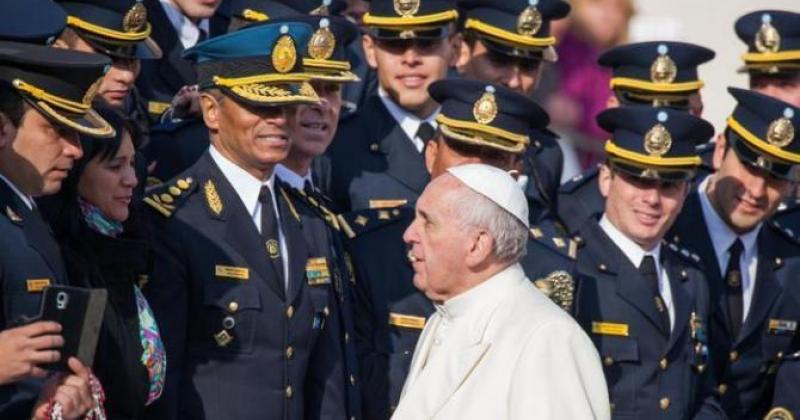A “non-aggression pact” jointly signed by the Islamic and Christian warring parties of the devastated Central African capital Bangui, helped avert any incidents unravelling during Francis’ recent visit. The document carries the signatures of Abdoulaye Hissen representing ex-Seleka Muslims and Maksim Mokom representing Christian-friendly anti-Balakas. The date of its signing is destined to remain imprinted in Europe’s memory: 13 November, the day of the Paris attacks. Just a few hours before the horror of fundamentalist ideology unleashed itself in the streets of the French capital, turning it into a bloodbath, in the heart of Africa, in a country that historically has strong ties with France, two influential figures whose respective armed groups have been at loggerheads in the Central African Republic (CAR) for a long time, signed a truce. Thanks to the patient mediation work of the Vatican Gendarmerie and the Community of Sant’Egidio, they have now officialised their commitment on paper, allowing Francis to inaugurate the Jubilee of Mercy over a week earlier than scheduled. Furthermore, the opening of Bangui’s Holy Door went ahead without any incidents or threats to the Pope’s safety or that of his entourage and faithful present.
On Monday, November 30, in the sacristy of the Bangui stadium where Pope Francis celebrated mass in front of thousands of young people, Hissen and Mokom, in utmost confidentiality, left the “non-aggression pact” in the hands of the Substitute Secretary of State, Archbishop Angelo Becciu, who confirmed to the press that the meeting had taken place and the document was delivered. In this way, the document was sent to Francis through the mediation of one of his closest collaborators. Readers will recall that the Central African leg of the Pope’s visit to Africa was seen as risky right up until the end because of the clashes between militants and above all because of the instability of the Muslim “KM5” neighbourhood - where shootings have been going on for weeks, leaving a number of people dead.
The French government had informed some time ago that it could not guarantee the Pope’s safety and that it would not be deploying its troops for this cause, strongly advising him not to go ahead with the visit. There were constant warnings right up until the eve the Pope’s visit to Africa. But Francis wanted to be there in person in order to show his closeness with his presence rather than with words.
And so, in the run-up to the Pope’s visit, the commander of the Vatican Gendarmerie, Domenico Giani, who spearheaded the operation and Mauro Garofalo, head of the Community of Sant’Egidio’s international section who has worked on peace mediation operations in CAR on a number of occasions, launched negotiations on the ground. “Together with the Gendarmerie’s commissioner Luca Cintia, we formed a small task force comprising four or five people and we held a number of evening meetings in Bangui’s riskiest neighbourhoods,” Garofalo explained to La Stampa. “The problem,” he continued, “was posed by the “KM 5”, the Muslim neighbourhood, as well as by various sections of the route Francis was due to travel along in the capital, areas where there is a strong anti-Balaka presence. We tried to explain that Francis was not coming as a politician but as a messenger of peace and that he visit was a unique occasion for reconciliation in the country.”
Abdoulaye Hissen and Maksim Mokom accepted and despite the fact that the militia themselves are divided – partly due to the tense climate ahead of the upcoming elections – they agreed to commit to respecting the truce.
The Pope’s trip, including his visit to Bangui’s mosque, went smoothly: he received a very warm welcome. The Gendarmerie had the support of MINUSCA’s soldiers, the Blue Helmets and the UN, led by Keita Balla, a Muslim general of Senegalese origin. Heads of UN security also came from New York.
Local sources confirmed that the pact is just about holding up. Freedom of movement for non-Muslims in “KM 5” has improved. “For the militia,” Garofalo said, “it was a chance to demonstrate their goodwill”. Yesterday, Fides news agency reprinted the statements gathered from Bangui’s missionaries: “The atmosphere that Pope Francis left is reducing many reactions, which until recently would have been violent and are now calmer. Unfortunately, some news media continue to inflate tensions like that of yesterday. The coming of the Pope has given confidence to the people and this has allowed the resumption of economic activities.” Hopefully the fragile truce will not be broken.
